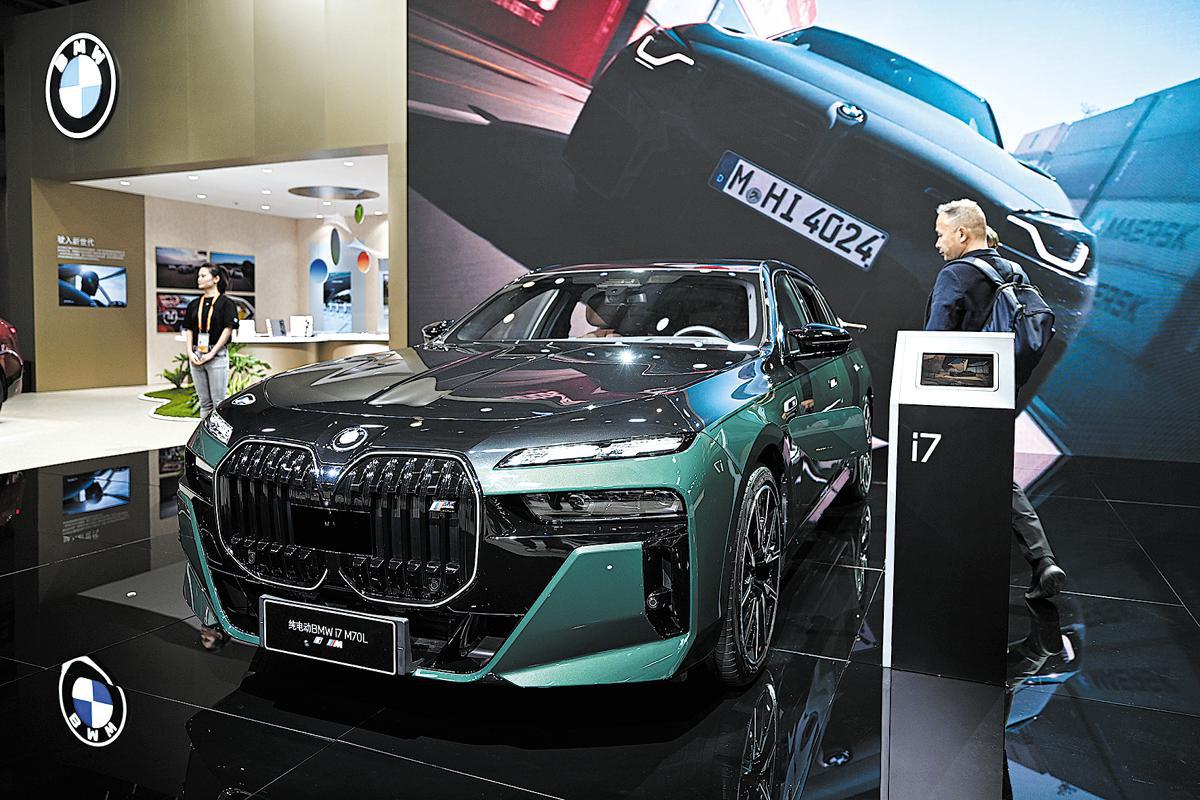Global auto giants look to China for future vision
Once solely a growing market, domestic innovation has turned the car industry on its head


Chinese tech's role
One of the most important assets for all global auto companies is China's thriving tech related to the industry.
Automotive AI, smart in-car functions, and advanced driver assistance systems (ADAS) have become key battlegrounds where Chinese companies lead, or collaborate closely, with international players.
In April, BMW announced integration of the locally developed AI model DeepSeek into its China-made Neue Klasse vehicles from 2026. The move marked a significant milestone in embedding Chinese AI into global products.
The Neue Klasse models will also feature AI agents developed in partnership with Alibaba, that will offer digital manual support and travel planning tailored for Chinese consumers.
Mercedes-Benz's long-wheelbase CLA — with ByteDance's Doubao large language model — further exemplifies how global brands tap Chinese AI to enhance the user experience.
"That is why you have to be in China," said Ola Kaellenius, chairman of the board of management at Mercedes-Benz AG in an interview with China Daily. "You have to be in China not just because of the access to the market but because of the technology, (and) innovation."
Kaellenius described China's role as a source of "inspiration not just to delight customers in China, but to use what we learn and innovate here also for the rest of the world".
Chinese smart-driving companies like Horizon Robotics, Momenta, and Huawei have become key technology partners.
Volkswagen's largest single investment in China was a 2.4 billion euro deal with Horizon Robotics in 2022, followed by the creation of a joint venture, Carizon, which will supply driver-assistance systems from 2026.
Volkswagen's premium Audi marque has partnered with Huawei to provide driver-assistance systems for its gasoline-powered A5L sedans and upcoming electric Q6L e-tron SUVs.
Honda, meanwhile, is co-developing next-generation ADAS with Momenta, and adopting DeepSeek AI technology for its electric Ye Series, a major pivot to harness Chinese tech capabilities.
UBS automotive analyst Paul Gong said: "China has evolved from a market with potential to the largest and most profitable market, then into the most competitive manufacturing hub, and gradually into a training ground and fitness center — and now, into a 'brain', the core of research and development."
The rapid localization of R&D and production, combined with deep collaboration with Chinese tech firms, is redefining innovation models for global automakers. Auto manufacturers that harness Chinese innovations in the industry will have a greater chance of restoring their markets and grabbing early advantages of the tech, analysts said.
The International Energy Agency predicts that NEVs will account for over 40 percent of global car sales by 2030. In China, the market share could reach 80 percent.
It is too early to predict the fate of overseas carmakers in China's NEV era, as most of their new models will not hit the market until 2026, which could be a make-or-break year for many of them.
Volkswagen's Blume, nonetheless, said he enjoys competition, likening it to sports, where competition helps improve one's performance. "If you aren't improving week after week, that means you are lazy — and that changes us, and makes us better," he said.
Blume said China is like a "fitness center" for the global automotive industry, where global carmakers can sharpen their competitive edge by operating in this market.
"Now, we feel fitter than we did two years ago. The customer will decide who wins in the market. You don't need to fear the battlefield when you're prepared," he said.
lifusheng@chinadaily.com.cn
























